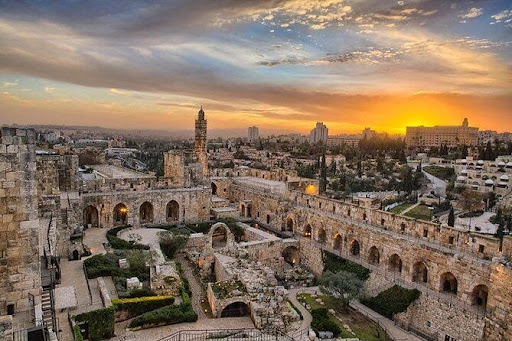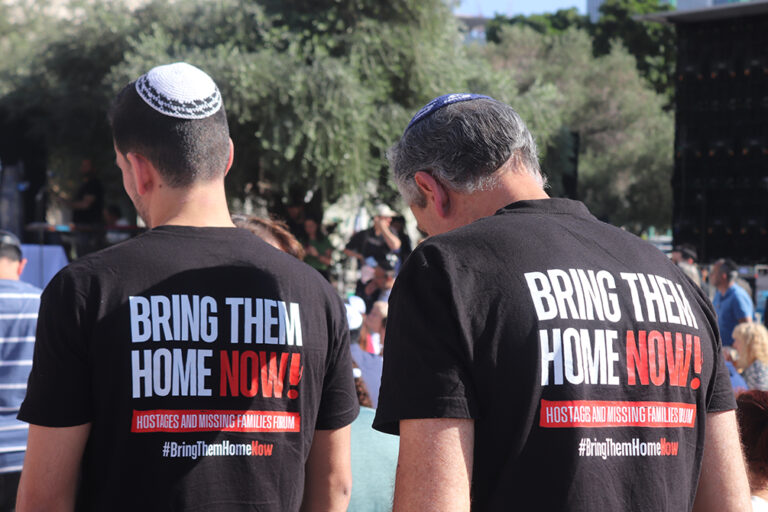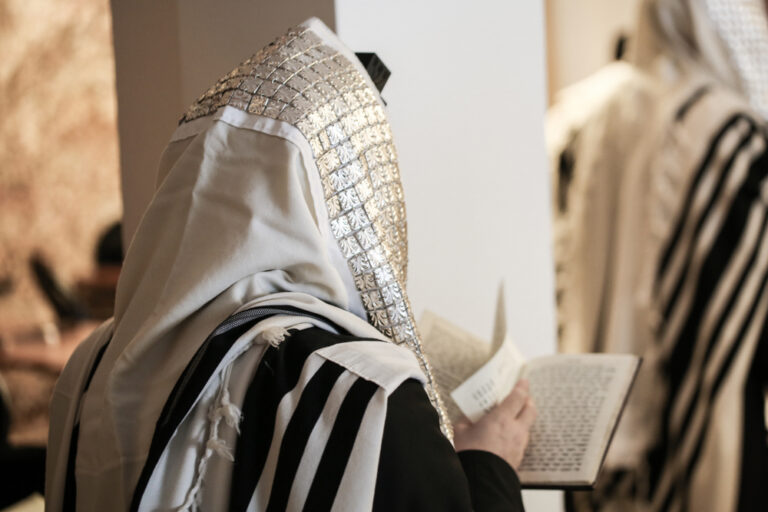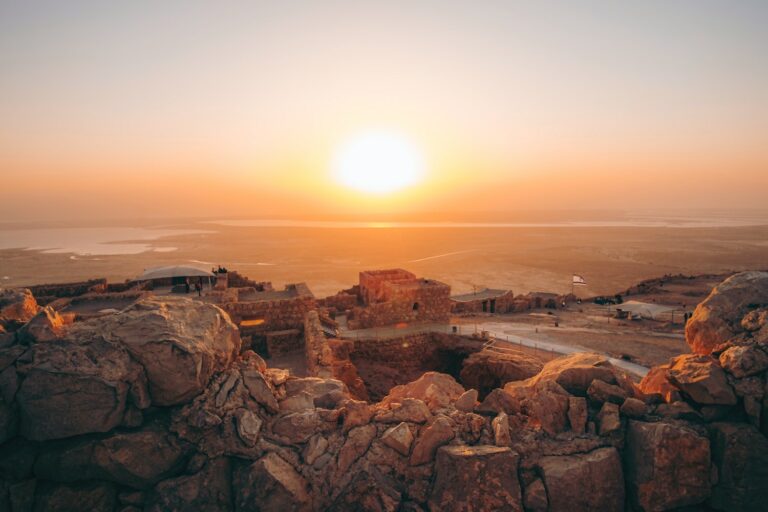Jerusalem has entered a new season following the decision by President Donald J. Trump to officially recognise the city as the capital of Israel and to move the American Embassy.
This is a time for renewed optimism among those who truly care about the peace and well-being of Jerusalem, as other nations consider whether to follow the lead of the United States in finally giving the city the universal reverence it deserves.
In Australia the Morrison Liberal government, while well intentioned, was not strong to get the same idea over the line. There were numerous political considerations that interfered including a somewhat hostile media class and department of foreign affairs and trade. A small piecemeal of diplomatic space was instead offered with hopes to revisit the idea which never came. The Australian branch of the ICEJ did make representations to the most senior bureaucrat in the office of Prime Minister and Cabinet at the time.
In 2022 the Albanese Labor government has since unrecognised Jerusalem in a most disappointing turn of events.
United States Policy
On 6 December 2017, President Trump granted de jure recognition to Jerusalem as Israel’s capital and announced that the U.S. intends to move its Embassy there. This decision left open for negotiation the final borders of the city, and was simply a common sense recognition of the reality that Jerusalem has served as the de facto capital of Israel for seventy years now and will remain so even in any final peace deal with the Palestinians.
He also stated that this shift in policy was grounded in four decades of overwhelming bipartisan support for such a move in the U.S. Congress, including its landslide passage of the 1995 Jerusalem Embassy Act. It also was in keeping with the campaign promises of the three preceding American presidents (Bill Clinton, George W. H. Bush and Barack Obama), which they had left unfulfilled.
This historic and courageous decision has begun the process of finally righting an historic injustice by the international community, in that Israel is the only country in the world denied the sovereign right of every nation to designate the city of its choice to serve as its capital and seat of government.
An Unjust Anomaly
In 1950, the newly-reborn state of Israel declared Jerusalem to be its capital and placed its institutions of government like the parliament (Knesset), the office of President and Prime Minister, and other cabinet-level ministries, as well as the Supreme Court all in Jerusalem.
This occurred despite the fact that Jewish western Jerusalem was still precariously surrounded at the time by hostile Arab forces. This decision to establish Jerusalem as the capital of the revived Jewish state reflected the deep spiritual and cultural significance which the Jewish people attach to the land and historical city.
For decades, the international community has extended de facto recognition to Jerusalem, in that nearly all visiting heads-of-state, officials and envoys, have all come up to Jerusalem to conduct affairs of state with their Israeli counterparts.
This includes Arab leaders, such as Anwar Sadat, who made his historic peace mission to Jerusalem, not Tel Aviv. Palestinian leaders Yasser Arafat and Mahmoud Abbas have also held peace talks and other official meetings with Israeli leaders in Jerusalem, and even attended the state funerals of Yitzhak Rabin and Shimon Peres on Mt. Herzl.
However, much of the international community has refused to extend de jure recognition to Jerusalem as Israel’s capital, and thus have placed their embassies and consulates instead in the greater Tel Aviv area. While some two dozen nations did have embassies in Jerusalem at some point in time, they were all eventually forced to leave under threats of violence and oil embargoes. It was at this time in 1980 that the International Christian Embassy decided to move in, when they all decided to move out.
Israel was the only country in the world denied the sovereign right of every nation to determine its own capital.
The origins of this unjust policy can be found in the 1947 UN Partition Plan, which recommended a division of Mandatory Palestine into a Jewish and an Arab state, but with Jerusalem and its environs set aside as a corpus separatum under international supervision.
This UN decision to “internationalise” the city reflected the religious prejudices of many Christian and Muslim world leaders at the time who had trouble accepting Jewish control over the holy sites of their respective faiths in Jerusalem and Bethlehem.
Even so, it is often overlooked that the UN Partition Plan expressly provided for a city-wide referendum within ten years which would have enabled the local residents to decide the fate of the city. Thus, the “internationalization” of Jerusalem was merely intended as a temporary measure, and the Jewish majority in the city would have soon ensured that it become part of Israel. Further, the overall UN Partition Plan was not a binding international decision, but rather a proposed course of action for resolving the brewing conflict over the land as the British Mandate expired.
Nonetheless, when U.S. President Harry Truman officially recognised the State of Israel in 1948, he also embraced the concept of internationalisation for Jerusalem, setting a course for U.S. policy on the city over coming decades which eventually drifted into folly. Meanwhile, many in the European Union still push for internationalising Jerusalem, even though it is now a completely defunct idea rejected by the core parties to the dispute over the city.
Pretext of Neutrality
After Israel reunified the city during the June 1967 conflict, there has been a continuing effort to deny Israel and the Jewish people their rightful place in Jerusalem under other pretexts. In particular, the international community has espoused the need to be “even-handed” when it comes to Jerusalem, so as not to prejudge the outcome of negotiations over the city between Israel and the Palestinians. But this has proven to be a disingenuous argument on several levels.
For instance, a number of nations who advocate neutrality on Jerusalem have located their chief diplomatic missions to the Palestinian Authority – some at the ambassadorial level – in Jerusalem, even while their Israeli equivalents sit in Tel Aviv. This includes Belgium, France, Greece, Italy, Spain, Sweden, Turkey, and the United Kingdom. Ironically, when all eight of these nations voted for the recent UN General Assembly resolution (ES‑10/L.22) adopted on 21 December 2017 in response to President Trump’s announcement on Jerusalem, they were immediately in violation of its terms, as it explicitly called upon all nations “to refrain from the establishment of diplomatic missions in the Holy City of Jerusalem.” If the international community were truly worried about states prejudging the issue of Jerusalem, they would have demanded long ago that these nations remove their diplomatic missions to the Palestinians from Jerusalem.
Top state department envoys to the PA have been sitting in the American Consulate on Agron Street, west Jerusalem for years. The Trump administration decision places an embarrassing spotlight on those nations who insist on neutrality towards Jerusalem and yet allow its violation every day in favour of the Palestinians.
In a further example of this blatant partiality, members of the UN Security Council, with acquiescence of the outgoing Obama administration, adopted a resolution on 23 December 2016 which thoroughly contradicts their supposed even-handed approach…
UNSC resolution 2334 declared East Jerusalem to be “occupied Palestinian territory,” and determined that Israeli actions were “settlement activities” which constitute “a flagrant violation of international law.” This amounts to the UN’s highest body deliberately prejudging the outcome of talks over the future status of Jerusalem, and in the process severely undermining previous international peacemaking efforts like UNSC resolution 242 in which Israel generously agreed to withdraw from land taken during the six day war of 1967.
The Fear Factor
Most nations still refuse to recognise Jerusalem and move their embassies there, because of the apparent fear of a violent Arab response. Due to such apprehensions, many sovereign nations have effectively ceded to the Palestinians a veto power over their policy positions concerning Jerusalem.
The recent U.S. decision to recognise Jerusalem did not however trigger the predicted apocalypse so many social commentators insisted was likely. There was also no uprising in the diaspora as some activists tried to plead. In fact the opposite occurred with the Abraham Accords bringing normalisation and fresh trade opportunities.
There won’t be damage to peace talks if the world follows the American lead in placing their embassies in western Jerusalem. All serious parties know this sector of the city will remain part of Israel in any final status agreement. Nor is anyone seriously looking for a return to that dismal era from 1948 to 1967 when the city was forcibly divided. And Israel would still be able to work out a suitable arrangement for the city in peace talks with the Palestinians.
The Proper Custodian
Christians and Muslims can trust both sides of politics in Israel with this business, who do not need the scriptures to understand the cultural reality that the city is established as a “house of prayer for all peoples” (Isaiah 56:7), where all can come to worship and pray to the Lord who is God.
Israel has committed to protecting religious freedoms, first guaranteed in its Declaration of Independence, as well as to maintaining the status quo with regards to access to the city’s holy sites.
In fact, of all the sovereign rulers over Jerusalem down through the centuries, Israel has compiled the best track record in ensuring freedom of worship in the city and allowing access to its holy places. The International Christian Embassy Jerusalem can readily attest to this, as for the past 40-plus years we have hosted the largest annual tourist event in Israel, the Christian celebration of the biblical Feast of Tabernacles, and have always been free to worship as we see fit.
The Jewish claim and connection to Jerusalem dates back 4,000 years to the time when the Hebrew Patriarch Abraham first came to Mount Moriah to offer up his son Isaac, as the Bible recounts in Genesis chapter 22.
Some 3,000 years ago, King David made Jerusalem the capital of his unified Israelite kingdom, and instructed his son Solomon to build a Temple there. The city has been the center of Jewish religious, political and cultural life ever since. From it have flowed sacred concepts such as the moral law and prophetic visions of global peace that have inspired the entire world.
Even during the long Jewish exile, hopes, prayers and pilgrimages were all directed towards Jerusalem. The deep Jewish attachment to the city predates the rise of Christianity and Islam by many centuries. No other people or nation has ever made it their capital, save for a short-lived Crusader kingdom.
In comparison, while some Muslims consider Jerusalem the third holiest city in Islam, after Mecca and Medina, this is not true for all Muslims. Many Shi’a Muslims actually revere the cities of Qom, Najaf and Karbala ahead of Jerusalem. Meanwhile, many Sunni Muslims, especially in the Wahhabi movement, reject Muslim veneration of Jerusalem as a later hadith (tradition) and not one of the original traditions established by Muhammad. As a result, very few Arab rulers and Muslim religious leaders have visited the Dome of the Rock or al-Aqsa mosque on the Temple Mount, even during the years of Ottoman Turk and Jordanian rule. It just seems that the city only takes on any real significance for Arabs when it’s in Jewish hands.
In Jewish tradition one always ascends to Jerusalem, no matter which direction you come from. Our hope is that God’s people wake to the truth of these matters, forms an army of piety that prays the peace of Hashem over this ancient city until Atik Yomin the ancient of days completes what we couldn’t and establishes everlasting peace in the city of Peace.
Extracts from David R. Parsons: attorney, journalist, ordained minister and Middle East specialist who serves as Vice President for the International Christian Embassy Jerusalem. He co-authored the initial draft of the Jerusalem Embassy Act of 1995 for Senator Jon Kyl (Republican ARIZONA)






